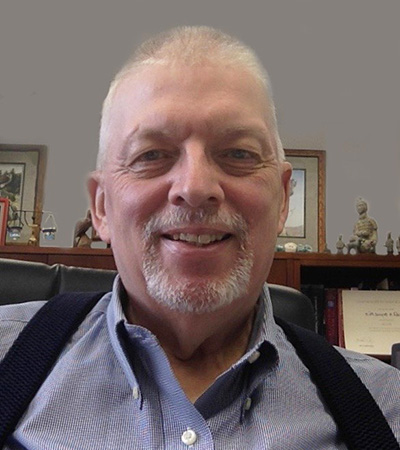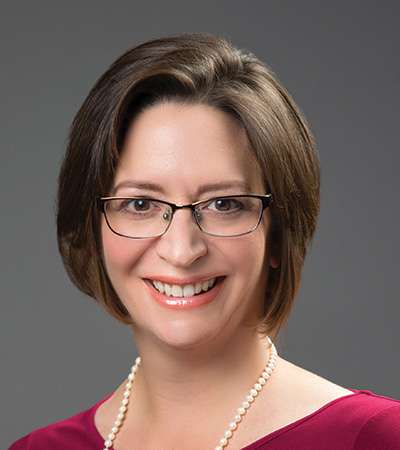Chair, lecture named for Bryant; Serio promoted again
Endowed chair, lecture in Bryant’s name
When Don Bryant announced his retirement after 41 years of teaching and research at Penn State, he made a pricey and impactful promise: His estate one day will give $2.1 million to the school to support both an endowed chair and a lectureship in his name.

Raised on a dairy farm in Kentucky, Bryant’s interest in science was piqued early on. His scientific life began in earnest in 1972, when he graduated with a bachelor’s degree in chemistry and biology from the Massachusetts Institute of Technology. He went on to earn a Ph.D. in molecular biology under the direction of Alexander N. Glazer and Frederick A. Eiserling at the University of California, Los Angeles.
After completing postdoctoral studies at the Pasteur Institute in Paris and Cornell University, Bryant joined the Penn State faculty in 1981. Over the years, he has had additional appointments at Montana State University and Nanyang Technological University in Singapore and completed various domestic and international sabbaticals.
Bryant took a shine to photosynthesis as an undergraduate, and that fancy never faded. His lab has been dedicated for decades now to determining the ins and outs of bacterial photosynthetic apparatuses.
“I’ve been doing research in this field for exactly 50 years,” Bryant said in a press release. “As I retire, I want to help ensure that there is a long-term presence of microbial physiology in my department, and having an endowed position for a senior-level researcher is an important part of that. I know from my own experience how important an endowed position can be for recruiting and retaining the best faculty and for giving them the resources they need to be creative and productive.”
The lectureship included in Bryant’s bequest also will focus on microbial physiology as he did throughout his career.
Bryant, a member of the American Society for Biochemistry and Molecular Biology since 1988 and a two-term editorial board member for the Journal of Biological Chemistry, has been a prolific author and mentor, with more than 450 publications and about 100 students and postdocs trained.
“There’s an old saying that if you can help establish one person in your field then you are doing better than average, and I’ve got quite a few more than one,” he said. “I’ve really enjoyed it, and all my awards and successes through my career really come down to the people I’ve gotten to work with. Being able to continue to have an impact through these gifts in my retirement is really very satisfying.”
Serio promoted again at UMass Amherst
Tricia Serio in July became the University of Massachusetts Amherst’s new senior vice chancellor for academic affairs and provost.

Serio studies prions. Her lab uses biochemical, imaging and mathematical modeling approaches to understand the initiation, accumulation and clearance of protein aggregates.
After earning her Ph.D. at Yale University and completing a postdoc at the University of Chicago, Serio started her faculty career at Brown University, went on to become a department head at the University of Arizona and then joined UMass in 2017. There she has served as dean of the College of Natural Science and associate chancellor for strategic academic planning.
Serio has been an active member of the American Society for Biochemistry and Molecular Biology community, serving on the Public Affairs Advisory Committee and advocating for research funding, workforce equity and science literacy.
Enjoy reading ASBMB Today?
Become a member to receive the print edition four times a year and the digital edition monthly.
Learn moreGet the latest from ASBMB Today
Enter your email address, and we’ll send you a weekly email with recent articles, interviews and more.
Latest in People
People highlights or most popular articles

From humble beginnings to unlocking lysosomal secrets
Monther Abu–Remaileh will receive the ASBMB’s 2026 Walter A. Shaw Young Investigator Award in Lipid Research at the ASBMB Annual Meeting, March 7-10 in Washington, D.C.

Chemistry meets biology to thwart parasites
Margaret Phillips will receive the Alice and C. C. Wang Award in Molecular Parasitology at the ASBMB Annual Meeting, March 7-10 in Washington, D.C.

ASBMB announces 2026 JBC/Tabor awardees
The seven awardees are first authors of outstanding papers published in 2025 in the Journal of Biological Chemistry.

Decoding how bacteria flip host’s molecular switches
Kim Orth will receive the Earl and Thressa Stadtman Distinguished Scientists Award at the ASBMB Annual Meeting, March 7–10, just outside of Washington, D.C.

Thiam elected to EMBO
He was recognized during the EMBO Members’ Meeting in Heidelberg, Germany, in October.

The timekeepers of proteostasis
Learn about the cover of the winter 2026 ASBMB Today issue, illustrated by ASBMB member Megan Mitchem.
